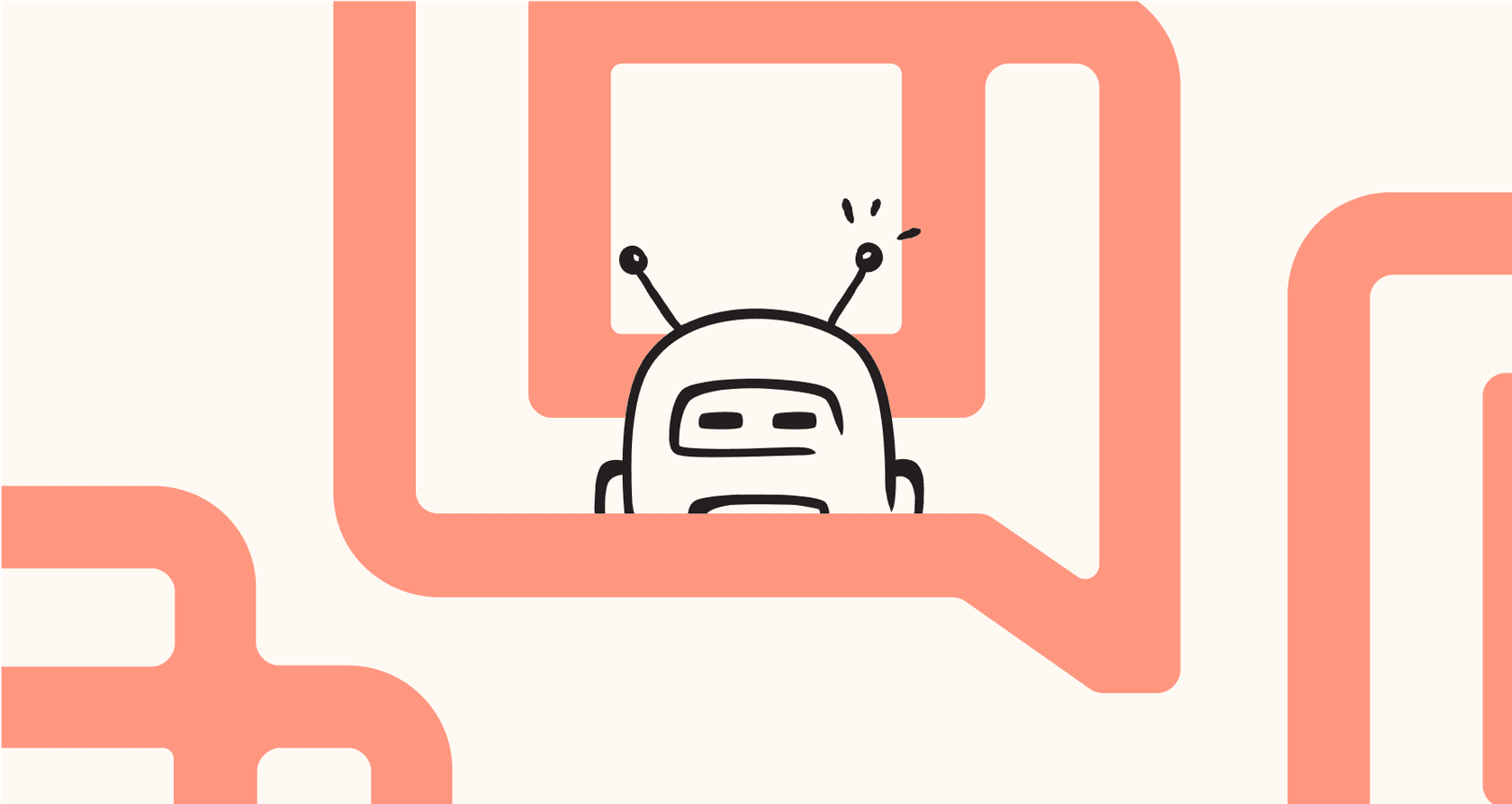A complete overview of the Gorgias AI copilot in 2026

Kenneth Pangan

Stanley Nicholas
Last edited January 16, 2026
Expert Verified

So, you're running an e-commerce store, and you've probably got Gorgias on your radar, if not already in your tech stack. It's a powerhouse for a reason. As you look into its AI features in 2026, you'll see how the platform has evolved. The built-in tools, often bundled under the name "AI copilot," are highly effective at streamlining your workflow.
We're going to break down what the Gorgias AI copilot actually does, how to optimize its scope, and how a complementary tool like eesel AI can work alongside it to really level up your customer support setup.
What is the Gorgias AI copilot?
Before we dive in, let's get on the same page about what an "AI copilot" even means in this context. Picture a smart assistant sitting right next to your support agents. Its main job is to handle the grunt work: drafting replies, summarizing long and winding ticket threads, digging up the right information, and taking care of repetitive tasks. This frees up your human team to focus on the tricky problems that need a real person's touch.
Gorgias has its own version of this built right into the platform. They call it their "AI Agent co-pilot," and it's designed to help agents with one-click actions like translating messages, getting a quick summary of a conversation, or changing the tone of a reply from formal to casual. Since Gorgias is built from the ground up for e-commerce, its AI is trained to get the lingo. It can figure out if a customer wants to make a return or just check their order status, and it can even pick up on their mood, whether they're happy, frustrated, or satisfied.
That's a solid start. Because Gorgias is a market leader, the term "Gorgias AI copilot" is also associated with various third-party tools that integrate with the platform. This ecosystem offers a variety of choices, allowing you to find the exact mix of native features and specialized add-ons that fit your needs.
Key features of the native Gorgias AI copilot
Gorgias's own AI shines brightest when it's handling the day-to-day grind of an online store. It’s tuned to streamline the most common questions that pop up over and over again.
Let's take a closer look at its core features.
AI-assisted replies
This is a central feature for the AI copilot. It helps agents fly through their queue by drafting responses to frequently asked questions. Need to tell someone your return policy for the tenth time today? The AI has a draft ready. It can also be a helpful tool for quality control. An agent can write a quick reply, and with one click, the AI can rephrase it to sound more polished and on-brand. It's also great for handoffs; the AI can summarize a long back-and-forth so the next agent can jump in without reading the entire history.
Intent and sentiment detection
This is where Gorgias’s e-commerce focus really pays off. The AI is sharp at reading an incoming message and figuring out two key things: what the customer wants (intent) and how they feel about it (sentiment). It can distinguish between a query about a refund, an exchange, or a shipping delay. At the same time, it flags whether the customer's tone is positive, negative, or neutral. This is the engine that powers its automation rules.
Automated actions
Once the AI detects the intent and sentiment, you can use Gorgias's "Rules" engine to tell it what to do next. For example, a customer might reply "thanks!" after you've solved their problem. Instead of that ticket sitting in the queue waiting for an agent to manually close it, you can create a rule that lets the AI detect that simple "thank you" and automatically close the ticket. On the flip side, if an urgent email about a delivery comes in, the AI can detect the negative sentiment, automatically tag the ticket as high-priority, and assign it to the right agent.
Order management integration
This is where Gorgias really flexes its muscles. It has a deep, two-way integration with major e-commerce platforms like Shopify, Magento, and BigCommerce. This isn't just a simple data sync. It means your agents can see a customer's entire order history, check tracking information, and even issue refunds or cancel orders without ever leaving the Gorgias dashboard. This integration is a huge time-saver and ensures data remains consistent across your platforms.
Understanding the pricing and scope of the Gorgias AI copilot
While the native features are powerful, it's important to understand how the pricing and knowledge scope work so you can plan your strategy effectively. By understanding these nuances, you can better decide when to use native features and when to look for complementary tools.
Performance-based pricing for automated resolutions
Gorgias uses a specific pricing model for its AI features. On top of your monthly subscription, there is a fee for each "automated resolution." According to their pricing page, this is typically around $0.90 to $1.00 for every ticket the AI successfully resolves.
This model is designed to be performance-based, meaning you pay for the results the AI achieves. During busy periods like a major sale, your automation volume will naturally increase, and your costs will scale alongside that success. This structure is intended for teams that want a direct link between their AI investment and the number of tickets handled without human intervention.
Focused knowledge sources for e-commerce precision
To maintain high accuracy, Gorgias's AI focuses on specific e-commerce sources: your Gorgias help center articles, your Shopify store data, and selected website pages.
This focus is excellent for handling standard customer queries. However, many companies have additional company knowledge stored in other locations. Your detailed product specs might be in Google Docs, your internal processes in Confluence, or your latest policy updates in a Notion doc. While the native copilot is optimized for public-facing data, you might find that you want to bring in more internal knowledge sources as your team grows.
Ecosystem consistency and scalable testing
Building your AI strategy within Gorgias allows for a very unified experience, as all rules and configurations remain within your main support platform. It's a reliable choice for teams that want everything in one place.
As you scale, you might also look for ways to run large-scale simulations on your historical data. While Gorgias allows you to test individual interactions, some teams choose to use additional tools to perform full-scale simulations on thousands of past tickets to forecast resolution rates and optimize their automation strategy even further.
eesel AI: A powerful complementary option for Gorgias users
If you're looking to expand the capabilities of your setup, you can integrate a specialized AI platform designed to work within the Gorgias ecosystem. Let's talk about eesel AI. It plugs right into Gorgias, acting as a supercharged AI copilot that adds more flexibility and transparency to your existing workflow.
Go live in minutes with a truly self-serve setup
Getting started with eesel AI is incredibly straightforward and designed to complement your current tools. eesel is completely self-serve, allowing you to sign up on your own and connect your Gorgias helpdesk with a single click. You can have a functional AI agent ready to assist your team in minutes, providing an immediate boost to your productivity.
Unify all your knowledge, not just your help center
eesel AI helps you connect to all of your company's knowledge, no matter where it lives. You can train it on your past Gorgias tickets to learn your brand's unique voice and successful resolutions. You can also connect it to internal wikis in Confluence or folders in Google Docs, and sync it with help centers on platforms like Zendesk or Intercom. This gives your AI a complete view of your business, which means it can provide even more detailed answers to both your agents and your customers.
Test with confidence using powerful simulations
A standout feature of eesel AI is its simulation mode. Before deploying new automation, you can run the AI against thousands of your actual past tickets in a safe, sandboxed environment. This dry run provides concrete data, showing you exactly how many tickets the AI would have resolved and identifying any gaps in your knowledge base. It’s a great way to forecast your results and deploy your AI strategy with full confidence.
This video explains how integrating AI and automation into Gorgias can significantly improve customer support efficiency.
Gorgias AI copilot vs. eesel AI: A direct pricing comparison
When looking at the two options, the main difference lies in the pricing structure. Gorgias offers a performance-based model that scales with your automated resolutions, while eesel AI offers a transparent, predictable plan that helps you manage your budget as you grow.
| Feature | Gorgias AI copilot | eesel AI (Business Plan) |
|---|---|---|
| Pricing model | Per "automated resolution" | Based on a flat monthly interaction limit |
| Price per AI resolution | $0.90 - 1.00 | Included in the plan |
| Predictability | Performance-based (scales with success) | High (fixed monthly or annual cost) |
| Example scenario | 5,000 automated tickets represents a $4,500+ investment | 3,000 AI interactions/mo for $639 (annual plan) |
| Flexibility | Monthly and annual plans | Monthly and annual plans (cancel anytime on monthly) |
Choosing the right Gorgias AI copilot
What's the bottom line? Gorgias offers a reliable and deeply integrated AI copilot that is excellent for handling essential e-commerce tasks. Its ability to manage orders directly from the helpdesk is a major advantage for teams looking for a unified experience.
For businesses that want to further enhance their intelligent support operation, adding a complementary platform like eesel AI is a great way to go. It allows you to learn from all your scattered company knowledge, gives you advanced tools to test and deploy, and provides a predictable pricing model that supports your long-term growth.
Get the most out of your Gorgias AI copilot
You can build a powerful support system by combining the strengths of the Gorgias ecosystem with specialized AI tools. See for yourself how eesel AI can transform your Gorgias workflow and deliver impressive results.
Start your free trial of eesel AI or book a demo to see our powerful simulation engine in action.
Frequently asked questions
The Gorgias AI copilot acts as a smart assistant, helping agents with tasks like drafting replies, summarizing conversations, and detecting customer intent and sentiment. It's built into the Gorgias platform to streamline day-to-day e-commerce support operations.
Key features of the native Gorgias AI copilot include AI-assisted replies for common questions, intent and sentiment detection from customer messages, automated actions driven by rules, and deep integration with e-commerce order management platforms.
The Gorgias AI copilot utilizes a value-based model, charging a fee for each "automated resolution" on top of your monthly subscription. This ensures you pay based on the successful results the AI delivers for your team.
The native Gorgias AI copilot is designed to learn from your Gorgias help center articles, Shopify store data, and specific website pages. This focus ensures the AI remains highly accurate for e-commerce-specific customer inquiries.
While the native Gorgias AI copilot allows you to review individual responses, you can also use complementary tools like eesel AI to run large-scale simulations on historical data to forecast resolution rates before full deployment.
Yes, the native Gorgias AI copilot allows teams to keep their automation and configurations within the Gorgias platform, ensuring a consistent and streamlined workflow for agents already familiar with the ecosystem.
Share this post

Article by
Kenneth Pangan
Writer and marketer for over ten years, Kenneth Pangan splits his time between history, politics, and art with plenty of interruptions from his dogs demanding attention.




